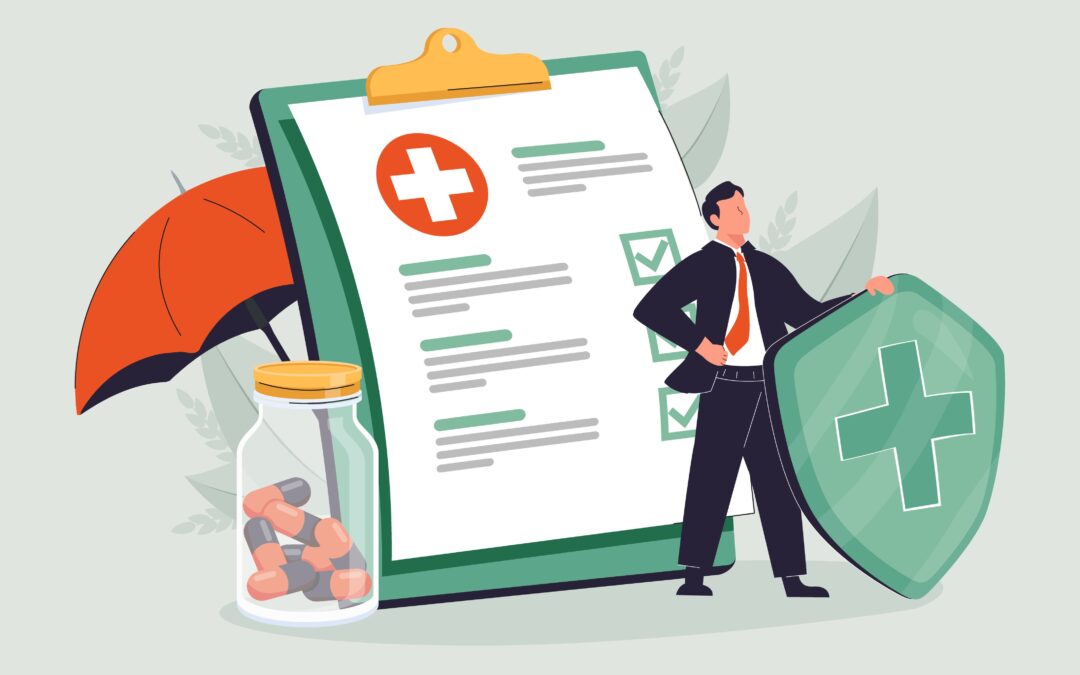A common concern that often arises is whether insurance covers the costs associated with drug and alcohol addiction treatment. There are a ton of factors that influence insurance coverage of drug and alcohol addiction treatment.
Note before you get started: We are here to help! Insurance coverage can be very confusing – give us a call if you or your loved one need help determining whether or not addiction treatment is covered.
I. The Need for Comprehensive Addiction Treatment:
- Complex Nature of Addiction: Drug and alcohol addiction is a complex medical condition that requires professional intervention and treatment.
- Treatment Modalities: Effective addiction treatment encompasses detoxification, therapy, counseling, medical care, and long-term support.
II. Insurance Coverage for Addiction Treatment:
- Mental Health Parity: The Mental Health Parity and Addiction Equity Act of 2008 mandates insurance companies to provide equitable coverage for mental health and addiction treatment.
- Insurance Plans: Coverage for addiction treatment varies based on the insurance provider, the plan chosen, and the state regulations.
III. Factors Influencing Coverage:
- Type of Plan: Different insurance plans, including Health Maintenance Organizations (HMOs), Preferred Provider Organizations (PPOs), and Exclusive Provider Organizations (EPOs), have varying levels of coverage.
- State Laws: State regulations can impact the extent and scope of insurance coverage for addiction treatment.
IV. Types of Addiction Treatment Covered:
- Detoxification: Many insurance plans cover medically supervised detoxification as a crucial initial step in addiction treatment.
- Inpatient Rehab: Some plans provide coverage for residential or inpatient rehabilitation programs.
- Outpatient Treatment: Intensive outpatient programs (IOPs) and regular outpatient therapy may also be covered by insurance.
- Medication-Assisted Treatment (MAT): MAT, which combines therapy and medications to manage cravings, is often covered by insurance.
- Aftercare Programs: Continuation of care through aftercare programs and support groups might be included in coverage.
V. Coverage Determinants:
- Medical Necessity: Insurance companies evaluate the medical necessity of addiction treatment based on professional assessments and clinical recommendations.
- Provider Networks: Staying within the insurance provider’s network of healthcare professionals can impact coverage levels.
VI. Preauthorization and Documentation:
- Preauthorization: Some insurance plans require preauthorization before starting addiction treatment.
- Medical Documentation: Detailed medical records and treatment plans might be necessary for insurance approval.
VII. Out-of-Pocket Costs:
- Deductibles: Individuals might need to meet deductibles before insurance coverage kicks in.
- Co-Payments and Co-Insurance: These are additional costs that individuals must bear for each treatment session or service.
- Coverage Limits: Insurance plans may have limitations on the number of therapy sessions or days of inpatient treatment covered.
VIII. Advocating for Access to Care:
- Reviewing Coverage: Individuals must carefully review their insurance plans to understand what addiction treatment services are covered.
- Seeking Clarification: If uncertain about coverage, individuals should reach out to insurance representatives or treatment centers for guidance.
IX. Closing the Treatment Gap:
- Addressing Stigma: Stigma associated with addiction treatment should be addressed to ensure insurance plans prioritize comprehensive coverage.
- Policy Advocacy: Advocacy efforts can drive policy changes that expand insurance coverage for addiction treatment.
X. Alternative Funding Options:
- Scholarships and Grants: Some treatment centers offer scholarships or grants to individuals with financial constraints.
- Employee Assistance Programs (EAPs): EAPs offered by employers might cover addiction treatment costs.
XI. Embark on a path towards lasting recovery
Breaking the financial barriers to treatment is essential for ensuring that individuals can embark on a journey of recovery, healing, and empowerment. By staying informed, advocating for equitable coverage, and seeking out alternative funding options, individuals can navigate the complexities of insurance coverage and embark on a path towards lasting recovery.

